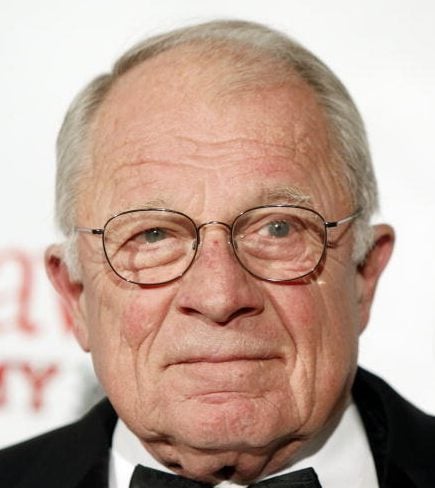F. Lee Bailey at a Glance
F. Lee Bailey: The Rise, Fall, and Controversial Legacy of a Legal Titan
What Was F. Lee Bailey’s Net Worth?
At the time of his death on June 3, 2021, F. Lee Bailey’s net worth was estimated to be $100,000. This figure is a stark contrast to the millions he once possessed. During his career, Bailey’s personal fortune was reported to have exceeded $10 million and possibly reached as high as $20 million. However, legal and financial troubles led to his bankruptcy filing in 2016. At the time, he was living in a modest apartment above a hair salon in Maine with his girlfriend. The only asset he declared was his 1999 Mercedes.
Early Life and Military Service
Francis Lee Bailey Jr. was born on June 10, 1933, in Waltham, Massachusetts. His educational journey began at Cardigan Mountain School and continued at Kimball Union Academy, from which he graduated in 1950. After attending Harvard College, Bailey dropped out in 1952 to enlist in the U.S. Marine Corps. He earned his wings as a jet fighter pilot in 1954 and was honorably discharged in 1956. Bailey’s pursuit of legal knowledge led him to Boston University Law School in 1957, where he achieved the highest grade point average in the school’s history. He graduated at the top of his class in 1960.
The Sam Sheppard Case: A Landmark Legal Victory
One of Bailey’s first major cases involved Dr. Sam Sheppard, who had been convicted of murdering his wife Marilyn in 1954. The sensational nature of the case and Sheppard’s plight later inspired the television series “The Fugitive” and the 1990s film adaptation starring Harrison Ford. Bailey was hired by Sheppard’s brother to handle the appeal. Bailey argued before the United States Supreme Court that Sheppard had been denied due process. His argument proved successful, leading to a retrial in which Sheppard was found not guilty. This victory solidified Bailey’s reputation as a skilled and effective defense attorney.
The Ernest Medina Case: Defending the Unpopular
Another notable case Bailey took on involved U.S. Army Captain Ernest Medina. In 1971, Bailey successfully defended Medina against charges related to the My Lai Massacre, where non-combatants were murdered by men under Medina’s command during the Vietnam War. This case highlighted Bailey’s willingness to represent clients facing unpopular charges and his ability to navigate complex legal and ethical dilemmas.

Kevin Winter/ Getty Images
The O.J. Simpson Trial: Bailey’s Defining Moment
F. Lee Bailey joined the defense team for the O.J. Simpson murder trial just before the preliminary hearings in 1994. His most memorable contribution to the case was his cross-examination of Detective Mark Fuhrman. This cross-examination focused on allegations of racism and police misconduct. Bailey’s line of questioning was crucial in creating reasonable doubt in the jury’s mind, ultimately leading to Simpson’s acquittal after a highly publicized trial that spanned more than eight months. In the 2016 FX miniseries “The People v. O.J. Simpson: American Crime Story,” Bailey was portrayed by Nathan Lane.
The Claude DuBoc Case: Legal Troubles and Disbarment
During the O.J. Simpson case, Bailey, along with fellow Simpson defense lawyer Robert Shapiro, represented Claude DuBoc, an accused marijuana dealer. DuBoc agreed to forfeit $6 million worth of stock in BioChem to the U.S. Government. The value of the stock increased to over $20 million by the time the transfer was to occur. Bailey claimed entitlement to the appreciation as part of his legal fees, and further argued he couldn’t turn over the stock as he had used it as collateral. This led to a contempt of court charge and a 44-day prison sentence in a Federal Correctional Institution in Tallahassee, Florida, before he finally surrendered the stock. Bailey’s actions in the DuBoc case resulted in his disbarment in Florida in 2001. Additionally, he was ordered to pay $5 million in taxes and penalties related to income from the BioChem stock, a judgment that was later thrown out but still left him owing a substantial amount to the IRS.
F. Lee Bailey’s Enduring Legacy
F. Lee Bailey’s career was marked by both remarkable successes and significant controversies. His defense of high-profile clients and his courtroom tactics made him a household name and cemented his place in legal history. However, his later financial troubles and disbarment cast a shadow over his legacy. Despite the controversies, Bailey remains a figure of fascination, and his cases continue to be studied and debated. His ability to capture the public’s attention and his courtroom skills leave an indelible mark on the legal landscape. His life serves as a reminder of the complexities of fame, fortune, and the law.
/**/

